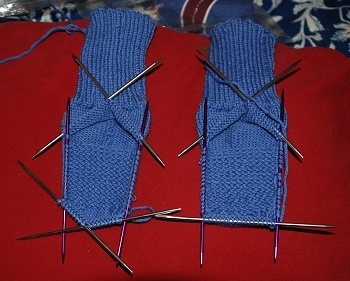Elizabeth Moon's Blog, page 27
August 25, 2012
Imperial Moth (Eacles imperialis): new species on 80 acres
Here's a big image of it. It's still where it was in the morning. According to what I read, it probably emerged last night--shortly before dawn--and will fly tonight to mate. I hope it finds another one and we see more of these around.

July 29, 2012
Perils of Perfection: Are You Real?
Thinking about various things--politics, attitudes towards writers, the training girls used to get (and still often express, as if it passed down through mothers even after the culture changed) melded with several blog posts I read before heading for ArmadilloCon and a couple of conversations both overheard and engaged in, while I was there.
Most of us have heard, from someone, at some point (and it's all over the political landscape) the claim or accusation that REAL (Americans/conservatives/liberals) think/do this and only this, and someone isn't a REAL (American/conservative/liberal) if they don't think/do this and only this. Most of us have heard that REAL women like/don't like/can/cannot think or do this, and REAL men like/don't like/can/cannot think or do that. REAL Christians/Jews/Muslims/Buddhists/Hindus/any-other-religion are like this, and anyone who breaks ranks in any way isn't a REAL whatever.
I'm not giving links to the specific blog posts, because I don't want to divert into a discussion of those blog posts specifically--but rather want to set out an idea that's been tickling my brain for the past months...about the link between the belief in the possibility--and the necessity--of perfection as a condition of being a REAL something, and some mechanisms that turn healthy groups into rigid, exclusionary, and imprisoning unhealthy ones. Someone may already have posted about the same thing, but the internet is huge and I haven't run into it.
I've been in (briefly) or on the fringes of (more often) groups that transitioned, even as I watched, from a bunch of people with a goal of improving things in some way--but still maintained some diversity of opinion in the group--to a bunch of people who had crystallized into a particular set of opinions and behaviors and had no tolerance at all for any different opinion. The first one I remember seeing do this was a schism in a church--a church I visited, when staying with the family who were members there--when I was a child. No, I'm not going to "out" a church that may not even be there at all anymore, except to say that the issue that caused the schism was, apparently, a matter of how girls should dress, when fashions changed. (Side issue: "How females should dress" is a major issue for many rigid closed groups, many of which--but not all--are religious groups. There will be a blog post about that another time.) If I remember correctly, it had to do with the width of the shoulder straps of sundresses (a popular style in an area that was 100F and hotter in un-airconditioned schools for months out of the year.) Neither side would give an inch (pun intended, in this case) and one group left in a huff. Also in my childhood (which overlapped the not-so-golden Fifties and included the McCarthy anti-Communist tirades) were the groups focused on who was, and was not, a REAL American. At our end of the country, a long way from everywhere else, we had a wide range of political opinions for kids to hear from adults. My mother had friends who were more, and less, conservative and liberal and middle-of-the-road...but at each end of the obvious axes were some who claimed the right to decide who was a REAL Democrat/Republican/Texan/American, as well as REAL woman and REAL man.
When I was in college, a number of social/political issues were hot--and hotly discussed--and of course groups formed around common ideas. At first, again, groups could form that had a passionate interest in one particular goal (it might be civil rights, or women's lib, or pacifism, or disability rights) and to be in favor of (for instance) the ERA didn't mean that everyone had to be a pacifist or a vegetarian or even "perfect" in all their ideas about people with disabilities. But always hovering in the background was the possibility that this might change...and purity tests...loyalty tests...tests to be sure that everyone in a particular groups agreed about everything...might show up. And sometimes they did. And if you were one of those who did not immediately (or after a couple of consciousness-raising sessions) agree with everything on that group's agenda, then---you were a traitor to the cause, a horrible evil person and not a REAL whatever it was and they'd whomp you with their ideological bats if you dared say you were a [whatever.] (One of the few amusing things about all this was being chewed out for wearing new blue jeans (which were, at the time cheaper) because I was supposed to wear the more expensive artificially "aged" jeans that pretended to indicate sympathy with the poor. Whereas...I bought jeans new and wore them until the "aging" process happened naturally, just like all the real poor people did.)
The goal of these groups began as something good--or so I think, but then I was in favor of the original mission, as I understood it. But...something happened. It wasn't a new thing that happened--humans have been forming the same types of groups, on both sides of many an issue, as far back as we can trace, and demanding of members a perfect, unquestioning acceptance of a long list of things that don't appear to be related to their initial goal. Humans make rules and try to enforce them, and in some cases become obvious control freaks about it. Of course this popped up in writing...groups defending their genre or subgenre--its difference from all others, the exact definition of it that group prefers ("That's not REAL science fiction...That's not REAL poetry...That's not REAL art.") I remember reading once a flat statement by a writer that someone wasn't a REAL writer until they'd written X number of published works--for another it was having earned a certain amount per year. Right after I joined a writer's organization, there was a big hoorah about which people in it were REAL writers and which were just dilettantes. Because it wasn't a new thing...and because it came in so many guises...and because it's so easy to focus on the actions that enforce the rules and use terms like "control freak" to focus on the individuals who do the enforcing, it took me a long time to connect dots that may be obvious to others....the psychological roots.
And no, I'm not going back to chimps, bonobos, etc. We can start closer to home. It feels good to be in a group of like-minded people. I had dinner with some friends Friday night during ArmadilloCon. We were talking about writer behaviors. The same writer behaviors bugged all of us. Agreement is comfortable. But...out of five people, none of us ordered the exact same meal. None of us were dressed exactly the same. I know (from past conversations) that we don't all hold the exact same opinions on quite a few things, including which books we like most to read, nor do we all have the same "lifestyle." And that was cool. We were hungry, we get along, we all ate dinner together enjoying our separate choices and our conversation. Nobody pounded the table and insisted that X writer was a REAL writer and Y writer wasn't.
It feels good to be a group of people whose like-mindedness extends beyond just one thing. There's a natural and not-bad tendency, an almost gravitational pull, to become closer to people who share multiple interests, not just one.
But it does not feel good to be prodded and pushed and scolded into agreeing with everything someone else thinks, likes, does...and it does not feel good to be booted out of a group because you don't conform by 5 or 10 or 15 percent--you're not perfect enough, you're not a REAL whatever. Some people give in and (in extremes) drink the Kool-Aid. The more people who do give in to an increasing pressure for total, perfect conformity, the more gravitational pull that conformity produces. Individuality disappears--the personal boundaries "melt" and the people (whether it's a couple, friends, a family, a church, a group)--are pulled into tighter and tighter coils, until (extending the gravitational metaphor) they're sucked into the black hole at the center of their galaxy and the original goal (of the couple, the friends, the family, the church, the group) is simply to drag in more people and make them conform, meanwhile excluding all "contamination".
In discussions of dysfunctional families, the concept of boundaries is fundamental. Identity is protected by boundaries--and boundaries can be too rigid or too flexible or appropriately healthy. The concept of boundaries helps define responsibility: an individual is responsible for his/her behavior, and someone with healthy boundaries recognizes that. Thus, if someone says "Come on, let's shoplift something--it'll be fun" an individual with healthy boundaries will be able to make a decision --not automatically go along. Without healthy boundaries, an individual cannot "think for himself/herself." And this is what the unhealthy groups/families/friends/political parties want. Perfection is perceived as a) possible and b) necessary, and then defined as "100% agreement/submission to this list.." Hence the DINO and RINO designations for Democrats or Republicans who deviate from the party line--hence the rigidity every group that has merged boundaries--become enmeshed--to the point that anyone who doesn't conform is defined as "not a REAL whatever."
I have been, over the years, labeled "not a REAL [whatever]" for one reason or another, in a variety of groups...sometimes by opposing groups at the same time, which would have been funny except that I was thinner-skinned as a younger person and what I mostly felt was trapped and a permanent target. Now it's pretty much a shrug...yup, another somebody who has a rigid idea of what I have to be for that person/group to accept me, a mold they're intent on pressing me into. Been there before, would have a roomful of those T-shirts except I tie-dyed them and donated them somewhere. It would be funny that some of these groups think they're in favor of diversity (not all, but some) and yet they're very rigid about how they define diversity (and diversity of opinion isn't welcome within the group.) It would be funny if it didn't mean that they're sucking themselves down a hole...and excluding a lot of people with whom they could work for the general betterment of the world, if only they weren't demanding perfection.
I know people who won't vote for anyone because no candidate is perfect--agrees with them on everything. I know people who break off a friendship because the other person doesn't fulfill all their requirements. I've known parents whose objection to public school was their children would come in contact with people who thought differently, who had different opinions, or different ways of doing things.
You know some people like that too, no doubt. Many people (and I was one of them) have the belief that if only you can find the person--or the group--that is Just Like Me (whoever they are) then bliss will fill their lives. Someone who likes the same music, the same activities, the same foods, who gets sleepy at the same time of day, wakes up in the same mood, etc, etc. The BFF who is your other self, the spouse who is your other self, the children who are just like you only younger and will grow up to be just like you, the colleagues who function as bobble-head dolls, nodding at you as you nod at them. Yup, we all agree on everything down to the least little detail: we are absolutely right, everyone else is absolutely wrong.
That's the dream...and it's a nightmare. Because narrowing, compressing yourself and the other person so that you are just one smaller person, isn't the bliss. In a relationship--whether it's 200 or 2,000,000--that insists on absolute submission/obedience/conformity--all are diminished. Natural diversity is diminished. Adding one whole person to another person...and allowing room for growth in each, and rejoicing in the places that are different...that's the bliss. Room to breathe. Fresh air to breathe. Space for the unexpected, for new ideas to grow and time to consider all this...because though there's the notion that perfection is both possible and necessary, attainable if only people will follow these rules, stay within the lines....perfection isn't possible. We are all fallible. Every couple, every trio, every group, is not perfect. The rules and lines can't create perfection, even if followed stringently, because they were made and drawn by imperfect individuals. Some have been proven functional by more than one culture, in more than one situation, but not all of them. Demanding perfection of others--and of oneself--leads to bad behavior, bad decisions, and bad outcomes for more than the person who's doing the demanding. The writer who can't let go of a manuscript until it's perfect...the artist who obsessively retouches a painting until it's "overworked" and the original concept blurred...the woman who has repeated surgeries trying to match a cultural goal of physical perfection (enlarge this, shrink that, change the shape of a nose or jawline or...) ...all these are the result of believing that perfection is both possible and necessary.
But shouldn't we try to improve? Yes, to the point where something is good enough for its purpose, and with the understanding that lasting change is often slower than we'd like. I had to learn to let go of a book when it was "done", not when it was "perfect" because perfection wasn't possible (in the first place, and given the imperfections of the writer) and was impractical (in the second place, and given the contract deadlines and my personal need to write another story after that one.) I've never yet made a batch of bread in which all the loaves were identical and perfect in size and shape--but I've made many batches of bread in which all were delicious. I have yet to make a mistake-free sock...but my feet are very happy with the socks I've made, and the later socks are definitely better than the first.
In terms of relationships, learning how to not be cramped by it, and not cramp the other person while uncramping yourself, takes time. Relationships improve when the people in the relationships improve...when they're developing normally, healthily, through life. Trying to squeeze them into a mold (either or both or all) and make them alike is not the way to go at improvement. In terms of social goals--political goals--"trying to improve" takes time (far more than many of us like) and cannot be done if someone in an organization is insisting on rigorous perfection of ideas from everyone in it. Many of us were brought up in a perfectionist environment: it's got to be right, exactly right, this way and only this way. So coming to the realization that "perfection" is actually a myth--that it's getting in the way of achieving the goals we want to achieve for ourselves and for the world--is hard to accept. Even more, when groups that are clearly over the edge of boundary violations, wrapped up in their tight hard little perfectly (apparently) conforming nodules, do--in their uniformity--possess the power to get things done. But not, on the whole, good things.
So...leaving out the capital letters...who's real? Everyone. You, me, the guy sleeping on the sidewalk, the women getting an expensive spa treatment, all those people I talked to or listened to or saw at the convention, and the ones driving their cars or trucks (even the idiot in the big rented van who shoved across three lanes in a short space making the rest of us nearly freak because he didn't seem to realize how long that truck was) on the road I drove coming home. Imperfect, each in our own ways. Annoying as all get-out to one another at times. Rewarding to one another at times. But real.
We don't have to be perfect. We don't have to try to be perfect (though trying to improve on something is fine.) Nor does anyone else. It's not about liking everyone equally...I can't even like all vegetables equally. It's not about unquestioning acceptance of everything (I don't, for instance, accept that child molesters are harmless.) It's about the validity of imperfection, the validity of (some) compromises in our lives, the worth of framily and friends and acquaintances who aren't Just Like Me.
July 16, 2012
Sockupines

On the right, the sockupine with both heel-flap-stitches needles in place, and with the single needle across the bottom--makes the rectangular shape of the original heel flap clear. On the left, the sockupine with the heel stitches divided again...each will pick up the flap stitches on one side of the flap, and then it'll be the four standing needles again, making a weird diamond shape The left one shows the heel turn (toward the camera better than the right one. If there were feet, they'd be pointed at the camera, toes level with the single horizontal needle in the right image. This is the "Denim One" pair, and the blue looks bluer and less faded/gray than in real life. (They've had been joined up yesterday but for power outages and storms...I can sort of do ribbing in the dim light of a rain-lashed window in the afternoon, but not anything as complicated as this, and I'm glad the top half of GreenTwo's ribbing will be well hidden under my slacks. Turns out I can do ribbing, but not perfectly. I'm suspecting that my foremothers who knit by candlelight did not produce absolutely error-free knitting.)
July 5, 2012
A breath of different air
Another pair of socks is off the needles and on my very happy feet. This is RedTwo, the second pair of red socks, and number four of the sock family, finished in late afternoon of June 6.


Pattern refinements continue, and these fit the best so far. Yarn is Ella rae Classic, 100% wool, worsted weight, knitted on size 5 US, at 6 1/2 stitches/inch and 8 rows/inch. They were just off the needles when I took these pictures--not washed, not blocked. The asymmetric toe shaping gives my long and upturning big toe plenty of room, without extra knitting wadded up in front of my little toe.
July 3, 2012
GOP War on Warriors
The GOP has a long and disgraceful history of disrespecting veterans who aren't Republicans--disrespecting their service, attacking their service records, repeating lies about them. I don't know when it started--but I do know that by the time I was finishing my own active duty, the GOP was both lying about Democratic candidates who were veterans and lying about the relative number of Democrats and Republicans serving in 'Nam. (There were more Democrats. The Republicans--as Phil Gramm said, as Newt Gingrich said--decided they were too valuable to the country to risk. So the Republicans with any pull--politicians' sons for instance--were largely found sheltered in those National Guard units whose governors weren't releasing them for service abroad--such as the Indiana Air National Guard, which was Dan Quayle's haven, and the Texas Air National Guard, which was George W. Bush's. Dan Quayle actually admitted he joined the Indiana Air National Guard because he didn't want to go to 'Nam--and he gets half an honor point from me for honesty, though it ticked off his GOP masters. )
But back then, when these conservative white boys were flag-waving for other people to serve and doing their best to evade service themselves (while sneering at 'draft dodgers', hypocritical infants that they were) the process of dissing Democrat veterans was gaining traction, and was soon in full swing. I was there. I saw it happen--both the draft-dodging of prominent conservatives, and the dissing of Democrats in and just out of the military. I saw what their vicious attacks did to Lewis Puller, a combat vet and amputee from service in 'Nam. I saw other Democratic candidates--military veterans--attacked with the same kind of sneering bile. Those attacks continued, and still continue, up to the present day. Republicans sneer at Presidents who have no military service record--but they attack Democrat politicians who do. Kerry and Gore, among the better known, but many others as well.
Remember earlier in this campaign, that debate among Republican candidates, when a soldier asked candidates their position on gays in the military and said he was gay? Republicans booed him. Booed a combat vet. Yeah, that's a lot of respect for the military, right there. Newt Gingrich flat out told gay military personnel to vote Democrat, because he wasn't going to do a damn thing for them. Once again, that's a lot of respect for military service, yes sirree bob. The Texas GOP's 2012 platform (which has many more faults than this, but this is pertinent here) asserts that gays should not be in the military, that it's against tradition (dudes...gays have been in the military in every war the U.S. has fought, and if you don't know that, you're just plain stupid.) Republicans have sneered at women in the military, hinting (in some cases) and flatly saying (in others) that women just aren't good enough, women can't do the job, women have these issues, etc.
So now we have a Republican Congressman from Illinois, a fellow by the name of Joe Walsh (a deadbeat dad, too, just to put icing on this lily-white cupcake of a man), who is not a combat vet, or a vet of any kind...who apparently thought himself too good, too valuable, to risk his pretty pink backside in a uniform, right out there in public dissing the service of a 20+ year veteran combat vet, his opponent who's a double amputee from a combat injury (she was a helicopter pilot whose chopper was hit by an RPG), saying she's not a "true hero" because--get this--she talks about how she lost her legs and that gives her some understanding of how important health care is for people. This is Tammy Duckworth we're talking about. LTC Duckworth,. Who lost both legs in combat, an injury you can't hide by re-tailoring a jacket sleeve. Who since 2004; when it happened, has been experiencing life without legs, and what that means to other people who may have lost their legs in other ways (or in combat) and what it's really like to need a whole boatload of medical care just so you can function. And this is wrong why? Oh, because Mr. Knows-All says it is, because he's met combat vets who don't talk about it. (The notion that a combat vet has a right to talk about it, or not talk about it--that they've earned the right to make that choice--seems to have slid past him, because--like other GOP candidates and spokespersons--he can't resist attacking a Democrat on any--even ridiculous--grounds.)
And this...person...(I am doing my best not to use the language I learned in the Marine Corps, though I make no promises for the future)...tries to wrap himself in the service honors of John McCain (because McCain didn't, he says, talk about his service. McCain, of course, had the entire publicity industry of the GOP talking about it for him.) This person...feels completely qualified--and entitled--to say Duckworth is not a true hero because she doesn't shy away from talking about what it's like to be a double amputee female veteran.
This person....needs a solid dose of reality. Wrap this little...person... in a blanket and take him away, stuff him in a uniform, drop him (with a parachute; I'm not fussy) into Afghanistan and let's see what kind of hero he is. (Come on--that's better than chopping off his legs with a dull hatchet, so he can experience double amputee life for himself and decide whether he'll ever talk about it.) Ensure that he sees enough combat to squeal like a baby pig, because I'm sure he will, and if he's injured give him the treatment he would accord others. And if he dies, no loss to the nation, not a person who runs out on family responsibilities and disrespects wounded warriors.
Now there are Republicans who have chastised the person for what he said. Veterans themselves. Good for them. But I wonder if they will now vote for Duckworth (since a number of them say they're "rock-ribbed" Republicans) or whether they'll yellow-dog-down on Walsh and vote for him because after all...you just can't vote for a Democrat. I wonder if they'll take a long hard look at what their party has done, and is doing, to disrespect the service of Democrat candidates and Democrats in office....in the ways their party's lack of support for the military and wounded warriors--in the name of "fiscal conservatism" in cutting funding, and in the name of "social conservatism" in special disrespect for women in the military (both straight and lesbian) and gay men in the military. I wonder if they'll take a long hard look at the pattern of behavior the GOP has demonstrated for the last fifty years now, and try to steer their party back to the moderate positions that allowed respect for non-GOP Americans.
I guess we'll find out on election day. I guess we'll find out if the pressure on Walsh (who has refused to apologize) stays on, or if it all goes away by the end of the week and he's once more the darling of the far, far right. One comment I saw said that his managers shouldn't have let him say that...a typical GOP notion that if you can hide the truth about something (remember the Abu Ghraib mess? When the first reaction of Bush's White House was not that something horrible had been done, but that people found out?) then it doesn't matter. The concealing rug is supposed to be kept permanently raised on one side, so anything untoward can be quickly swept under it.
But once more there's this large pile of elephant poo, steaming and stinking, inconveniently large to hide under any rug, let alone an elephant hide. This is what the GOP is about--Joe Walsh isn't unique--he's just another one whose smooth gray elephant hide slid off enough to show the festering hatred of the bigoted hyena within.
July 1, 2012
A Day of Remembrance
Yesterday Jim’s friends gathered to remember his life and spread some of his ashes on a meadow in central Texas. Jim was a multi-talented man with many interests, generous with his time and skills in helping others, including me. Jim solved computer glitches. Jim helped my husband finish building Cloud Pavilion, one of our rain barns that collects water for wildlife on our (dry) property. Jim designed jigs to help New World Arbalest produce better bolts for their crossbows. And I heard of many more things Jim did to help others, in the years that I knew him.
Jim also suffered from serious mental illness that sapped his energy and his joy, worried his many friends, and finally ended his life, in a successful suicide several weeks ago. In some belief systems, this is unforgiveable. In some peoples’ minds, it’s cowardice and moral weakness. But suicides, like homicides, come in many varieties. Jim had been in treatment, with multiple drugs, with multiple interventions and hospitalizations, over the years. This was not a person who chose “a permanent solution for a temporary problem” but a person who, after the many failures of therapies and drugs, could only see his as a permanent problem that became ever more intolerable. Exactly like someone with an incurable physical illness that causes them great pain or loss of mental function and causes great distress to those who love them. Although there are advocates for assisted suicide for those with such physical problems, there are none for those with incurable mental problems–and I understand the reasons very well. I also understand why those with long-standing mental illness that does not respond to treatment may choose suicide.Our autistic son, to my surprise, spoke up as others did–but differently in that he was typically blunt about what happened…others skirted the reality, but our son said, along with other things, “I’m sorry Jim killed himself.” It’s the part we all–all Jim’s friends–had a tough time getting around. We knew he was hurting. We tried, in various ways and amounts, to be supportive and helpful. It wasn’t enough. We’re all sorry he killed himself. And yet…as with any terminal illness…there’s also a little guilt-producing relief. No more suspense. No more worry if it’s safe to leave the house for an hour or so, if it’s safe to let the other person out on his own. It’s over…for Jim, and for us.
Those of us who have also suffered depression wrestle with the guilt that for us, the treatments worked–why not for him? Why were we the lucky ones?–but also have the relief of having made it through a dangerous passage, and the fear that maybe, someday, we won’t. But right now–we’re here, and understanding a fellow sufferer’s reasons. There may be survivor guilt in some hearts, but there’s also survivor joy, and a reminder that even if, in our own dark hours, we can’t really believe anyone could love a severely depressed person…right now the evidence is clear that people do.
We were blessed in having space to offer–a meadow where Jim had walked whenever he came to visit, a meadow brilliant gold with wildflowers in the spring, as a place for the gathering and spreading of ashes. And a house in which to hold the reception afterward, both room to gather and room to be separate for those who needed a little more time, and that alone. It’s summer here now, and dry, with cracks in the ground, and the meadow is brown…but I’d sent pictures of it in spring to Jim’s family and some friends. It often functions as it does for me, as a breathing space, a space where people can go out in turmoil or distress, and come back calmer, having let the land itself speak–the silence, the shapes of beauty, a space that isn’t already full of human things and human opinions and human distress.
The rest of the time, as people came back from the meadow where the ashes were spread, was spent (as usual at such times) in eating a lot and talking a lot–some more Jim stories, and other topics as well.
The only difficulty, for the person in charge of arranging the material side of things, was not knowing how many would come, or what those bringing food might bring. Of course we ended up with too much…but equally of course, that was the right amount. I’d been told there might be twenty coming. Calculated for 25-30. And we had a full three dozen….with enough food for more. People ate and ate and ate (as they need to do at such times) and consumed gallons of iced tea, punch, and sodas, as well as water. (Did I mention it was HOT??) And talked, of course. As time went on we had the main group (in the back room, the largest) and satellite groups in the kitchen, the living room, and outdoors in the carport near the ice chest.
One of the guests made a plaque to hang on the rain barn Jim helped build, with the names of the men who worked on it. We’ll have a little ceremony when we hang it up (that rain barn is too far away to make people walk it on a very hot day, and the fire danger’s too high to drive there.) Even with chairs out in the meadow, some people were having heat problems.
The best of Jim, the happiest of Jim, was present yesterday, in the memories of his friends–friends he often doubted he had. Though we cannot forget his misery, his mental anguish, we can and will remember the times Jim was happy, the times Jim was fully here for us.
This is the meadow--earlier in spring of course--where part of Jim will always be.
June 13, 2012
Sometimes You Just Hafta Go Crazy
So there I was at A-Kon, and there was a seller of wildly colored wigs. Including lush, long ones with curling tendrils and things. And on the last day...I still had money in my bag and I'd been thinking about choir (which I was missing, being there) ...and temptation called. There are probably few things more ridiculous than a woman my age with a big, full, "Texas hair" type bright (!!!) turquoise (!!!) wig...unless it's that woman dressed up to surprise her voice coach at a lesson, in a shiny royal purple robe (it was our son's high-school graduation robe--the school colors are purple and white.) The wig is definitely a diva sort of wig. It lacked only a Miss Piggy nose and ears and tiara (had no time to hunt for them, sigh.)
When I got to the church, I put on the wig and robe in one of the downstairs women's restrooms, and then went upstairs toward the choir room, where my lessons are. Choir director's office door was open a little, and I heard his voice, talking to the organist, so I glanced in...and he caught site of the turquoise and purple apparation. Jaw-drop and confusion...I waved airily and sauntered off to the choir room. It wasn't long before he came looking--he hadn't recognized me, and the jaw-drop happened again when he discovered who was inside the costume.
Sometimes you just have to go a little crazy. It's been a tough week for me and a lot of my friends, due to the suicide of a friend, but this...sorta kinda helped.
June 12, 2012
E-books
Why don't you let your books be made into e-books? To which the answer is 1) All my novels are available as e-books, in multiple formats. Information about them is on my website and on the publishers' websites. 2) All current book contracts with traditional publishers cover release as an e-book (usually in addition to release as hardcopy. E-book publication is now standard and universal among traditional publishers, at least for fiction.
If you can't find a current book from a traditional publisher in e-format...you're not looking in the right places. (But you should be aware that Amazon.com has de-listed books for a variety of reasons, including an argument with a publisher. Most such de-listings have been temporary, but might convince the unwary--who look only at Amazon--that a given edition does not exist. Try something other than Amazon to check (the author's website is a good start, as are author pages at publisher websites.) If you have a brand-new-shiny e-reading device with a proprietary file format that doesn't match any other, however, you can expect a lag (as publishers scramble to figure out how to format files to display correctly on that device) before the first e-books show up with it. (And if you think that's not a real problem, you haven't talked to the people doing the work. I recently read David Rodin's War and Self-Defense--an Oxford University Press book--on a friend's Kindle, and the formatting was...difficult to read in places, is the kindest way to put it.)
But now to the main point of this post--which is the source of many questions and complaints: e-book pricing. Since I have already demonstrated a willingness to make waves, I'll start by dropping a very large rock in the pond of assumptions about e-books....that they "should" be cheap, like potato chips...that pricing them even as much as a regular mass-market paperback is too high (one of my correspondents announced angrily that he would never pay as much as that and huffed away.)
E-books are now considered a desirable format...for many reasons. One reader can "contain" hundreds of books--so that many books are easier to store (never mind that Amazon and other suppliers can snatch them off your e-reader as fast as they downloaded them in the first place--and Amazon has done so), easier to carry around. One e-reader clearly weighs less and takes up less space than the number of books "in" it. Since e-readers are expensive (for most of the people in the world, out of reach expensive), they're a luxury item--entertainment electronics. Now in most of the first world, if you want more convenience....you pay more for it. If you want the latest thing right away...you pay more for it. If you want it delivered to your door, rather than going to a store to buy it...you pay more for it. (Free shipping is sometimes available, but not always, from all suppliers.) If you want the sparkly/shiny/newest/most fashionable....you pay more for it. Whether it's a more efficient automobile, a car with all the latest electronic connections, the best sound system, that parking assist thingie....you pay more for it. So--given that e-books are a luxury, a highly desired format for many affluent readers--why all the outrage if an e-book is priced higher than a paperback? Why are some readers not willing to pay for the convenience, the compactness, the immediate gratification of a download? Where did they get the idea that luxury should be cheap? Good sheets aren't cheap. Quality china isn't cheap. Organic vegetables aren't cheap. Why books?
Behind that demand--besides the sense of entitlement to "what I want, when I want it, how I want it, for free" is lack of understanding what costs lie behind every book, including e-books. From the point of view of the people behind the curtain--the people who write and produce books--every book has certain fixed costs, regardless of the format under which it's released, and some books have additional costs in some formats.
Author Costs: Writing a book takes time and effort. How much time varies, depending on the length of the book, the writing speed of the author, and the other obligations (day job, family, etc) of the author...but in my case, which I know best, a book takes me a year of considerably more than 40 hour weeks, with no vacation time. Some of those weeks reach 80 hours; I'm guessing the average runs somewhere between 60 and 65. The same hours of my work go into the book, no matter what format it comes out in: hardcover, trade paperback, mass-market paperback, e-book. The effort--what it takes to think up the characters, the story, to generate those words every day, day after day after day--is impossible to make clear to those who haven't tried it. Yes, it's exhilarating when it comes together (and it's a mental crash when it doesn't.) But it's also the long slog through all those words, making sure that they make sense, that cause precedes effect, that characters keep acting like themselves, that punctuation is not just correct, but clarifies meaning, that the reader knows who's talking not only with attribution tags, but with vocal tone and physical gesture, and so on. Some days this part is easy. Sometimes it's the proverbial sh*tting bricks. But the important thing to realize (besides that it's work--real work) is that the reader gets the same story, the same words, no matter what format they come in. I have put as much into the research before and during the book, into revisions, the edits, the copy edits, proofreading...the same effort to promote it (maintaining--which includes paying for--the websites, writing the blog entries, visiting bookstores, going to conventions) without regard to what format the publisher uses. Why should I be paid less per copy for a version that is a luxury item in the first place, and much-desired in the second?
Publisher Costs. Producing a book to professional quality takes time and effort...and because the people putting in the time and effort must be paid, it also takes money. To get a good book at the end takes eyes on the page all through the process, and those eyes have to be paid. There is no automatic process that substitutes for eyes--human eyes, trained human eyes--looking at every symbol, every letter, every punctuation mark, every margin, every word on every page. And they must be different eyes, because humans get bored and skim over something they've seen before. So the first--and very necessary--cost to the publisher is the cost of hiring those human eyes: editors, copy editors, artists and book designers, production personnel to set up files for typesetting, proofreaders. It takes longer to do a good job of editing 800 manuscript pages than it does to edit 500 pages. Every cost-cutting measure that leads to fewer eyes on the page will result in additional errors. Whatever the format in which the book finally appears, the up-front cost of producing a book well has already piled up fixed costs, and those fixed costs are the same for all formats. All books, in traditional publishing, go through editing, copy editing, book design (font, margins, etc.), conversion of the incoming word-processing file to the out-put file that "sets type" and goes to the printer to be run through that printing machine.
This conversion is not mere button-pushing--not all writers use the same software (or the same edition of the software) and every software has peculiarities (as does every writer.) For instance, there's the big argument about spaces after sentence-ending punctuation (one space or two?) and the argument about tab v. automatic indentation at the start of paragraphs. (I can attest to the fact that some releases of MS Word are not reliable about indenting at the beginning of paragraphs after a carriage return and occasionally require a manual tab, which you had better have set to the right size ahead of time. Production may hate to see tabs--since unlike on typewriters, the code is different for a five-space auto-indent and a five-space tab and their software balks--but in my opinion someone needs to write better software for both writers and typesetters/printers.) It may be less arduous than the older process of setting lead type, but the conversion still takes eyes on the page, all the way through the page proofs.
Once the book is typeset for hard-copy printing, there are only one or two formats to consider--two, if the book first comes out in hardback and then a year later in paperback, or one, if the book is issued as a paperback original. Reformatting from hardcover to paperback is relatively easy these days.
E-books, however, are a different kettle of fish. Thanks to the bright ideas of e-reader developers, there is no single standard. file format that will work with all e-readers, and file conversion is--once again--not as easy as some readers think. (Note the comment above about the Oxford University Press edition of Rodin's book...something in the software occasionally combined words intononsensewords or divided words into sen sele ss blocks of letters...just like that, and separated by more than one space.) Once more, eyes on the page--only this time, reading the entire file on every single reader, to see if the formatting "holds" all the way through. The initial presumption--that publishers could take the writer's cleaned-up/edited digital file, plug it into a machine, and get a clean, perfectly formatted digital output--turned out to be a very false hope. (We knew that already for the scanner-to-OCR-software-to-spell-checker conversions from paper to digital...an early experience for me that turned "soldiers" into "sold hers" all through one book. These errors--as the spell checker chooses real words--can be harder to find when reading proofs, though "Twenty-five sold hers came out of the woods" is pretty obvious.) So e-book production--the behind-the-curtain stuff you don't see happening--has the same basic "get the manuscript edited, copy edited, ready to publish and typeset" cost as a paper book, and in addition has the cost of converting it to however many e-formats the publisher can afford to support.
Once the e-book is formatted, it has to be stored--and the storage itself has to be maintained. Sure, most books take up less than a Mb of storage space, a tiny fraction of today's storage space on a commercial server....but the server takes up a whole lot of kilowatts of electricity--and so does the AC to keep the servers cool. Redundancy--so if one bank of servers goes down, the book will still be available to readers somewhere else--is necessary. The website from which the book is downloaded has to be built and maintained. So once again, humans come into it, and they all want to be paid for their work. None of that is free--not the work to build the site, not the servers, not the electricity that powers them, not the software that runs them.
Friends of mine who have begun producing their out of print books themselves--converting the digital file (if they had one; scanning the book if they didn't) have reported that it takes hours (during which they're not writing) to do the publisher's job. They get faster with practice (they know the typical errors that creep in) but still...hours go by in which a chapter (or two, or three) could be written. It's now possible to pay someone to do the conversion for those who don't want to climb the learning curve to doing it but that adds to the up-front cost of being your own publisher and producing your own books..
All of which is why I am not overly sympathetic to those who complain about the price of an e-book and insist it should never be more than (whatever they think, which has ranged in emails I've gotten from 99 cents to $5) because (as one said) that's how much they can drop without even thinking about it.
There were years when I didn't have the money to buy new books. I'm an avid reader and re-reader; I treasure the books I now own, from Misty of Chincoteague on up to the latest purchase (Stephanie Pearl-McPhee's Free Range Knitter, if you must know.) There were (and still are) free libraries, where I could borrow them. As I made a little more, I could buy paperbacks (so I was reading the latest Dick Francis a year or two after it came out--so what? It was new to me.) I bought used books (at one time all my hardcover purchases were from used bookstores and library sales.) And when I could, I bought new hardbacks (or got them as presents--super-yay for that!) So I've been through the "I can't afford books" thing myself and support libraries that lend books and used bookstores that sell them.
What I don't support is the notion that new releases in the most desirable edition--the e-book--should be priced below the cost of production--at a level where the people who made the book--from writer to editor to printer to binder to cover artist to bookseller--can't make a living unless the writer is at the very peak of bestsellerdom. Whether it's Amazon using its muscle, political and economic, to complain about trad publishers "price-fixing" (as if it weren't Amazon who tried to force the publishers to accept its price, without regard to existing contracts or the cost of production) or individual readers.
So: if the price of e-books annoys you, don't buy e-books. Go to the library, buy used copies, wait for the paperback. Don't gripe at me. Especially don't make it clear that you think my work--word for word the same--isn't worth much if anything in e-book form, just because you can fit it into your e-reader without your arm feeling the strain.
And now...back to work on the edits of the 800+ pages of the next book that someone thinks is worth less if it comes in a more convenient package. Maybe I should try telling the grocery store that I'll only pay the per-pound price for pork-on-the-hoof for that bacon in the convenient one-pound package. Er...no.
May 29, 2012
An Array of Socks

Red One has been worn the most (being the first) and then Blue One; Green One will get its first full wearing over the weekend, at A-Kon, along with the others. I will pack along my own towel to roll them in, lest they put a little color on a hotel white towel. The difference in size between Red One and Blue One is mostly that I added some stockinette between the ribbing and heel flap for Blue (besides making it a little narrower.)
Red Two is on the needles, but still in the ribbing. Denim One has one sock barely on the needles and one still not cast on. I could call it Blue Two but it's not that blue, really, and I have yarn for another blue pair that will be a true blue, not a teal (though in the late afternoon light, they don't look the color they really are.) Red One will be a sort of cross between Blue One and Green One--stitches decreased from Blue, but not the eye-of-partridge heel flap...I want them to fit in shoes that heel's too thick for. Denim One will be true work socks for in the field--thickened heels (like Green One, but in a less fancy stitch.) Maybe a thickened sole, too, for more cushioning. Red Two is coming with me for A-Kon, and I hope to be through the ribbing by the time I get back. Maybe even through the stockinette and into the heel flap. I might take Denim One along too. I have several hours to knit on the train each way.
May 25, 2012
Green One Off Needles
Until the rejoin, at which point...the heel flaps weren't as stretchy (besides being 2 stitches narrower and the top of foot also being 2 stitches narrower. I had to change gussets to help with that...and then try to adjust (with frequent try-ons. First they'd be really tight, then (when I let off on the decreases) suddenly they'd be overly loose. And the attempt to graft/Kitchener the toes shut...worst so far. Each pair has been harder--this pair was impossible. I was trying to do it flat, off the needles, using cooking twine to hold the stitches:

The idea was to stuff the end of the sock to make a rounded-nearly-flat work surface, and I'd be able to see what I was doing. There's a separate piece of twine through each needle's worth of stitches--6 front, 6 back. (Tied up here to they couldn't come loose I *still* could not see what I was doing. The stitches "shrank" without the needles in them. I had directions. I had watched the video again. I had directions in front of me; I understood the directions...but I could not see the stitches, or the results of what I was doing, except as a confusing mound. The first rounds tried to crawl back down into the fabric...I undid them and started over. Yes, I'd done things in the right order but they didn't look right. I did them again. And again. By the second or third stitch, there was a mound of yarn...and time (more than an hour...considerably...) was passing. Frustration built. Laundry needed to be put out. The other sock had barely started its toe decreases.
I gave up and ran yarn through every stitch and pulled the toe together. OK, it's a sock, it's not the best sock, but it's a sock.
The second sock, I left on needles, except changing to a smaller size needle right before trying to graft the toe, thinking that might help. No. This time I gave up faster (family had come back from the city--the solitude in which to say things to the yarn, the needles, etc., and the lack of interruption was over) and purse-stringed that one, too. It's annoying--I was able to do it with Red One and Blue One, both of whom have imperfect but definite grafted toes. But here they are, Green One socks on feet, off the needles. They're comfortable. I can walk in them, in shoes or out.


The thicker heels do help with my wider-heeled walking shoes, but also (and understandably) push my foot forward in the shoe a little. Although these fit better in some areas than previous pairs, they're still a bit big where I had to change the rate of decrease at the gussets. Learned a lot, but it's still not the perfect pattern.
On the very bright side, I now have three pairs of socks.
Elizabeth Moon's Blog
- Elizabeth Moon's profile
- 2621 followers



